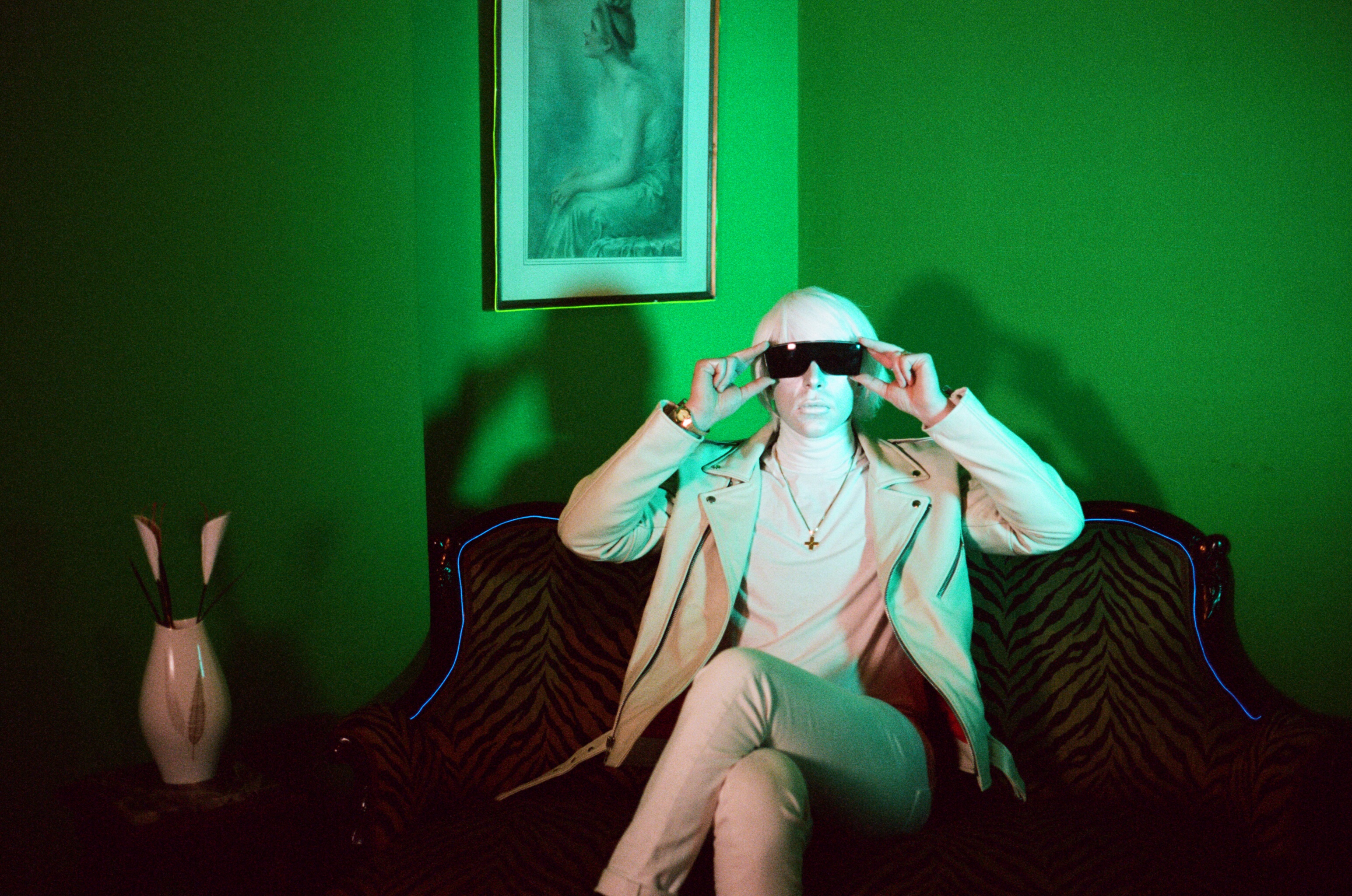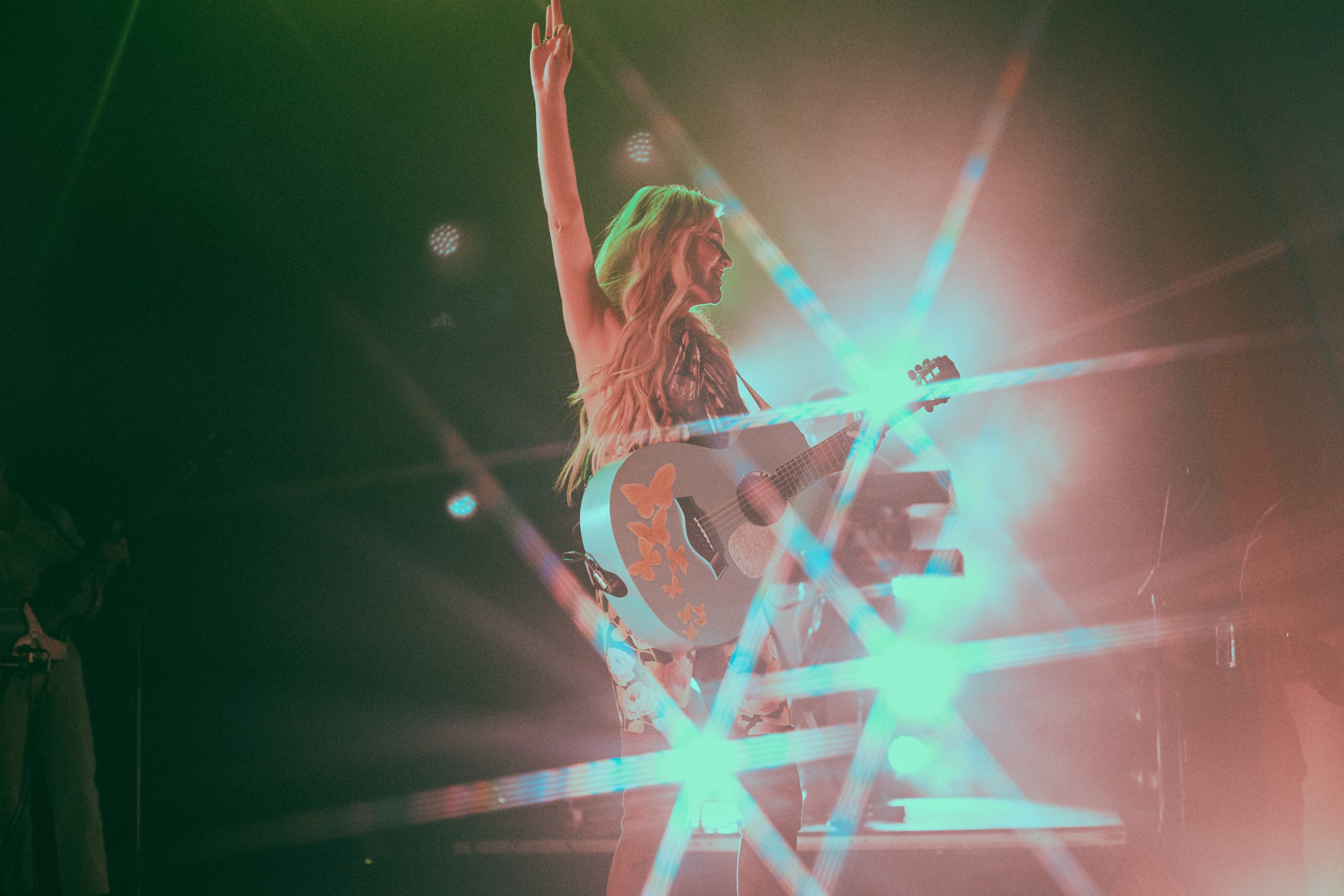Drab Majesty are one of the most interesting groups around at the moment. Their art is familiar and inviting but unconventional, and challenges listeners to reconsider themselves and their surroundings. We spoke to Deb Demure and Mona D, the ethereal characters behind Drab Majesty following the release of Modern Mirror…
First of all, how are things and how are you? Congratulations on the album! It’s a beauty.
Thank you! We’re great. We’re currently sitting in a tepid green room in a scorchingly hot Austin.
What do you find attractive in an abstract approach to style, music and life? There’s a lot of dark and light in your music.
Deb: I’ve never really considered our approach abstract actually. What we do comes pretty naturally to us. Our work is a synthesis of everything we love about art. I find authenticity attractive. Allowing one’s art to be an extension of values and interests and nothing more. Nothing geared at gaining praise or fandom but unmitigated honesty and risk. It’s a tall order and something I’m still figuring out how to do.
If you strip our songs down to their bare bones they are essentially folk songs at their core.
Deb Demure
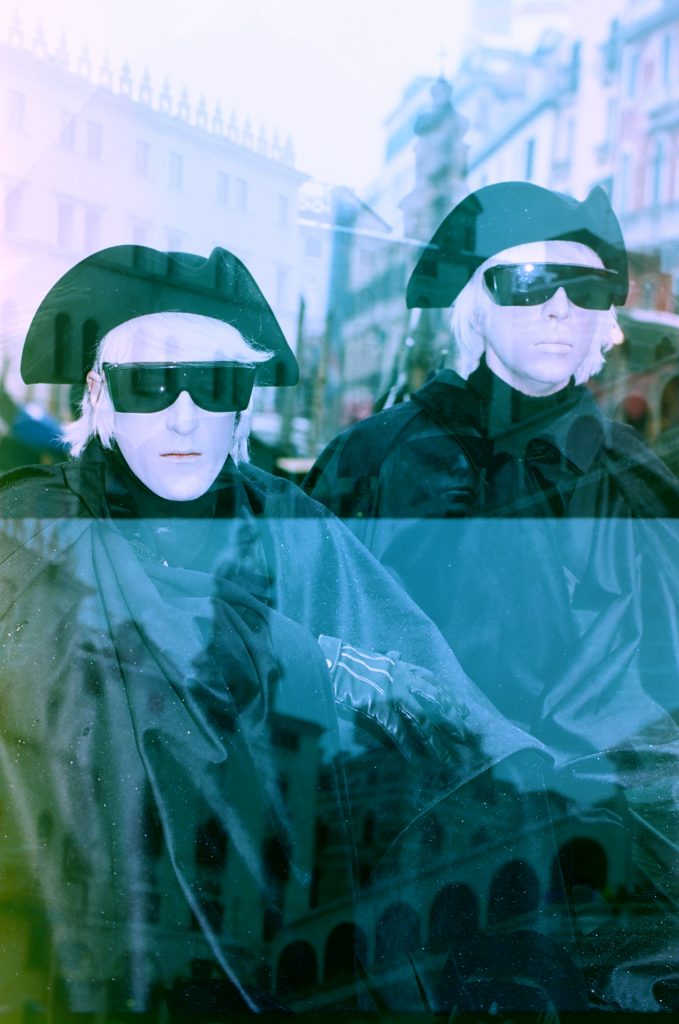
You have a strong awareness of aesthetics, what is the importance of looking at performances as more than sound but as art to you?
Mona: Sound is one aspect of a performance. The stage is something to be beheld. The characters that inhabit it are as interesting as the audience imagines them to be. Sometimes, all it takes is a particularly enthusiastic fan projecting their own fantasies onto the guy playing bass in jeans and a vintage t-shirt. Everything on stage is amplified. Personalities become mythologized. Every word of banter between tunes is important. In many cases, the strangest character you can play on stage, especially a concert stage, is the idealized, egoic version of yourself. All things are permitted on stage. That is what makes a show so special. Anything can happen. We think it’s rather fun to dress up and let you decide what we’re doing. The results vary person to person and we wouldn’t have it any other way.
You can never really look back into the past without creating something new.
Deb Demure
How has music helped you explore your own identity? Have you created different characters for different purposes pr do you think singularly?
Deb: While I feel very personal about the process and the initial inception of a project/song/album/vision, I often feel detached from the end result. At some point during the process, the thing I’m aiming to achieve becomes this unfettered sum of its parts and more. It’s like a chemical equation gone amok and that’s the magic that I continue to enjoy about the process. It’s helped me understand that no idea is too precious and it’s ultimately a liberating experience to commit to a song and realize that its endpoint is far from chartable. Embodying alter ego’s and characters helps me merge this experience with my normal Andrew brain.
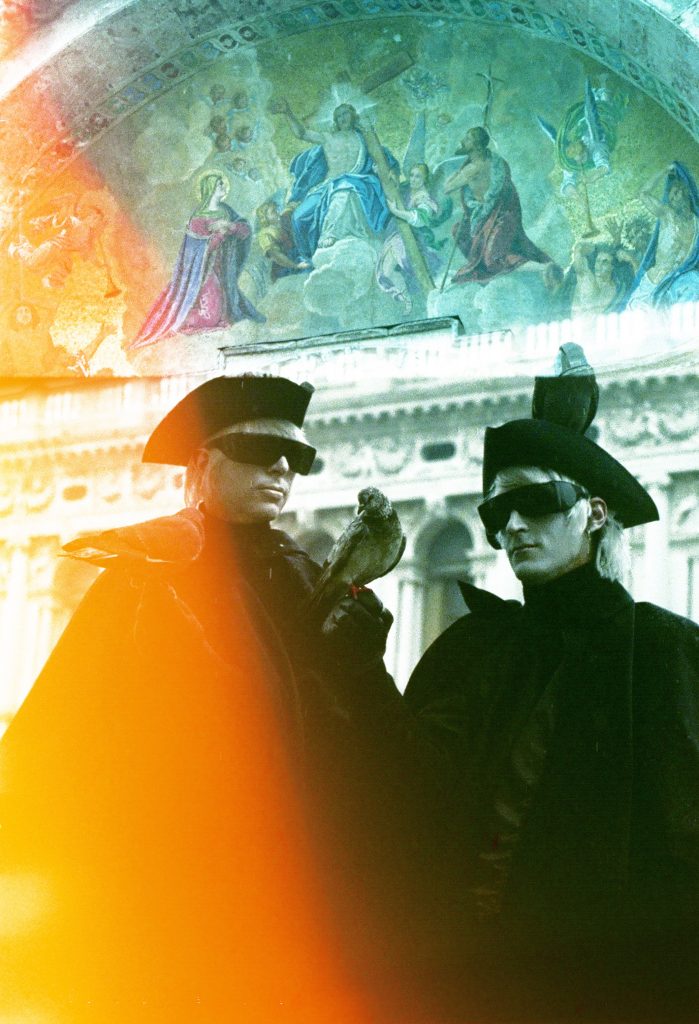
In previous interviews, you’ve spoken about an interest in cults. What draws you to them? Cults quite often have an oxymoronic character to them, they’re eerie but welcoming and comforting, is that something you strive to create in your music?
Mona: Cult is a very crude word for a phenomenon that illuminates many of the darker aspects of human nature. Endemic in every human is the desire to belong, to feel significant and to attain some understanding of truth. In our collective conscience, cults represent the ways in which these desires can be manipulated and used to form group identities which, in effect, strengthen and give credence to an ideology. The more people believe, the stronger the ideas, the faith in those ideas becomes. The cult is in that sense, the foundational unit of historical change. If enough people believe in something, it can become true. However, the drama that envelopes some who choose to place their faith in beliefs found intolerable to society form the central narrative of our collective experience. Many beliefs that even people today might find radical have been floating around forever. Perhaps they haven’t found the right framework of aesthetics or personalities to liberate them into the mainstream. Either way, the rise and fall of ideas will always be relatable to any artist or any person attempting to express themselves.
The strangest character you can play on stage, especially a concert stage, is the idealized, egoic version of yourself.
Mona D
What is it about Roman and Greek culture, especially in the story of Narcissus that you found interesting to explore in your most recent album? Does Narcissus seem like quite a pertinent story for today’s society to you?
Deb: Mythology always has a present-day application. These are archetypes that have repeated themselves through history and throughout the years. I like the character of Narcissus because of the full rejection of something that is tactile and on this Earth, a living, breathing person who is in love with himself for something that is intangible, his reflection on the water, and for a modern-day application: the screen.
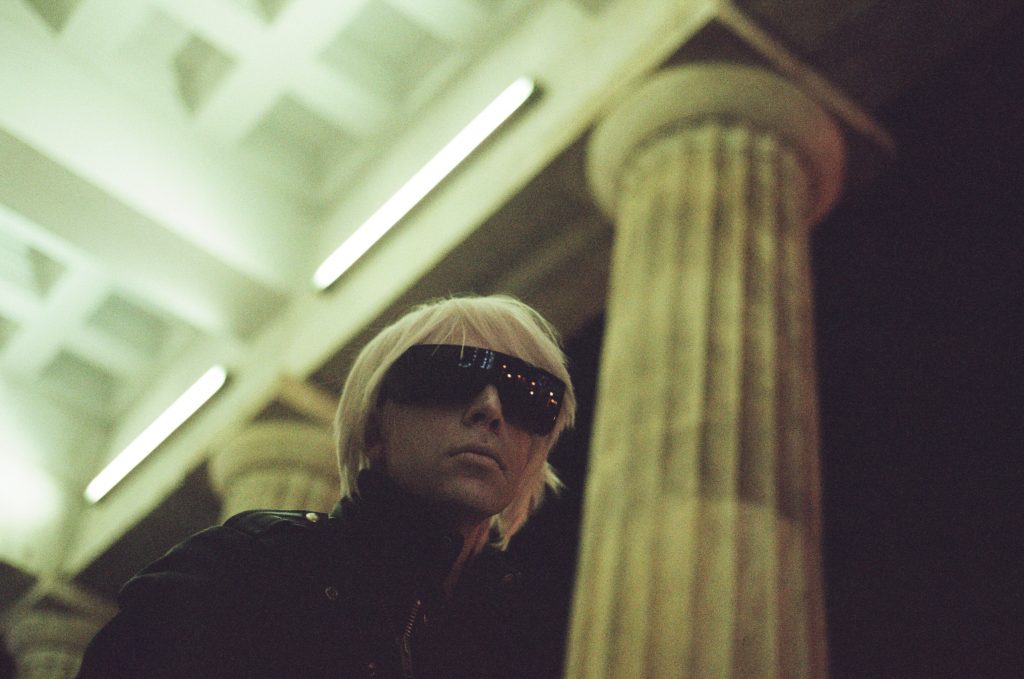
Do you find it helpful to look backwards in time when creating what many describe as a “futuristic” or “sci-fi” style of music? The idea of the “civilization” is quite key to both I’d say.
Mona: You can never really look back into the past without creating something new. No perception of the complexities of previous centuries will ever yield anything other than a new model. The act of reaching into the past is a creative act. It represents a search for something that cannot be found. But stories and ideas can be collected along the way. History is one of those subjects that is very difficult for some people to grasp. I think it clicked for me when I realized the more I learn about the past, the more intricate, however flawed, my mental tapestry of life becomes.
We thought the new album captured 80s new wave/alternative bands, The Psychedelic Furs and The Cure. Are they influences? And if so, what about the era connects to you as artists? Or do you feel your art is not reflective of the 80s at all?
Deb: Those are definitely bands we love but not ones we consciously refer to when making our music. Our influences span a gamut of artists and genres. I understand that the 80’s comparisons are pretty obvious and readymade and our sound palette is very much an 80’s one, but if you strip our songs down to their bare bones they are essentially folk songs at their core.
Finally, what are your plans for the rest of the year?
(A lot) More touring. Sleeping. Eating nice things. Maintaining Sanity.
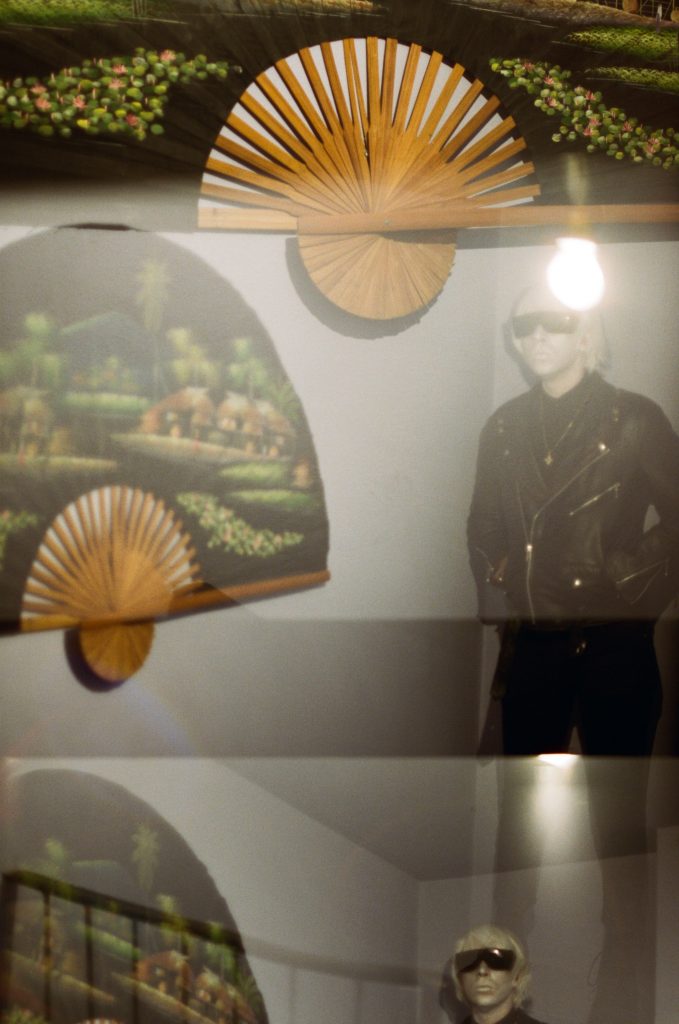
Drab Majesty UK tour dates:
Sept 18 – London, UK – Dingwalls
Sept 19 – Manchester, UK – Soup Kitchen
Sept 21 – Leeds, UK – Wharf Chambers
Sept 22 – Cardiff, UK – Clwb Ifor Bach
If you missed it, you can read our review of Drab Majesty’s ‘Modern Mirror’, here.

